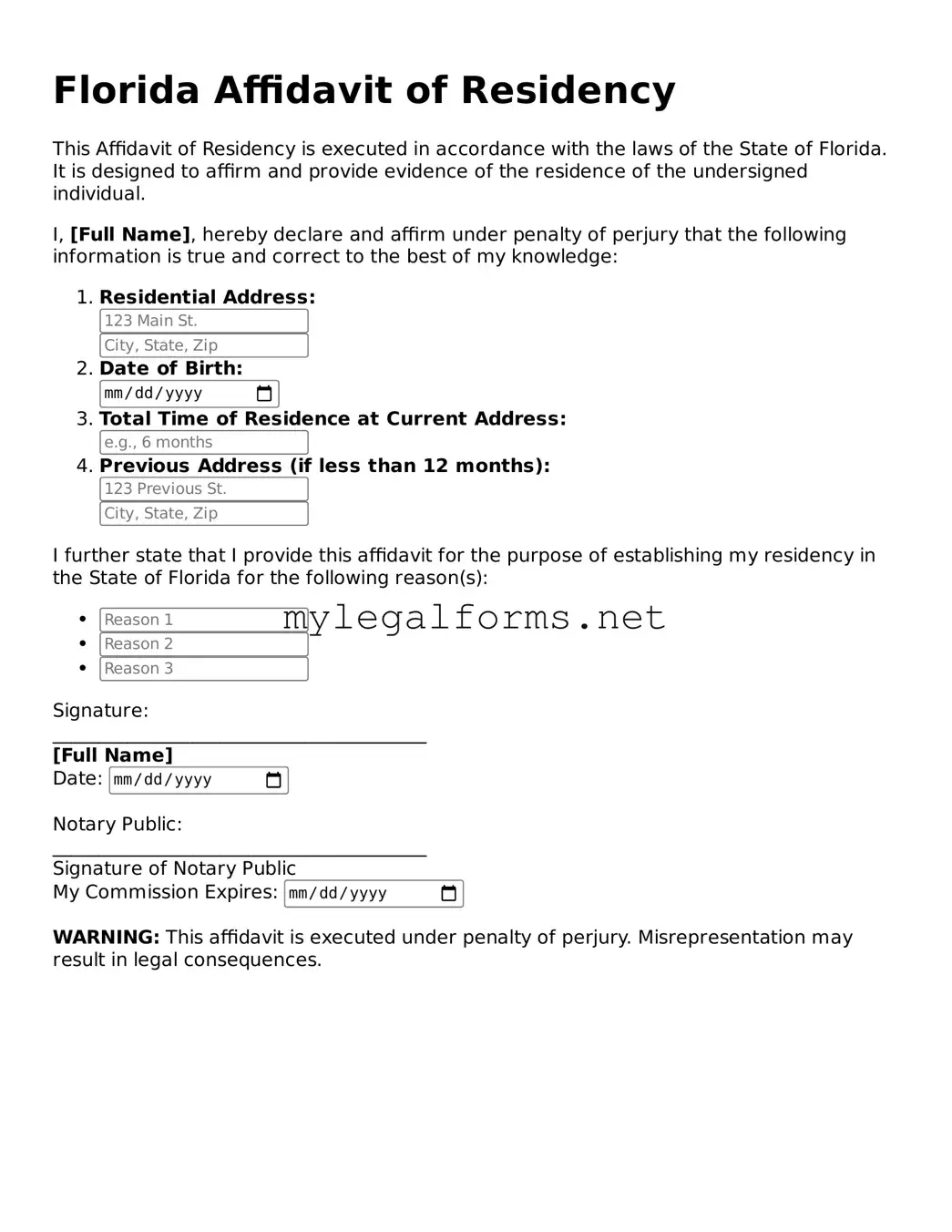Affidavit of Residency Document for Florida State
The Florida Affidavit of Residency form is a legal document that individuals use to confirm their residency status in the state of Florida. This form serves various purposes, including verifying eligibility for certain benefits or programs that require proof of residency. Understanding how to properly complete and submit this affidavit is essential for ensuring compliance with state requirements.
Launch Affidavit of Residency Editor

Affidavit of Residency Document for Florida State
Launch Affidavit of Residency Editor

Launch Affidavit of Residency Editor
or
⇓ PDF Form
Complete the form at your pace — fast
Finish your Affidavit of Residency online and download the final version.